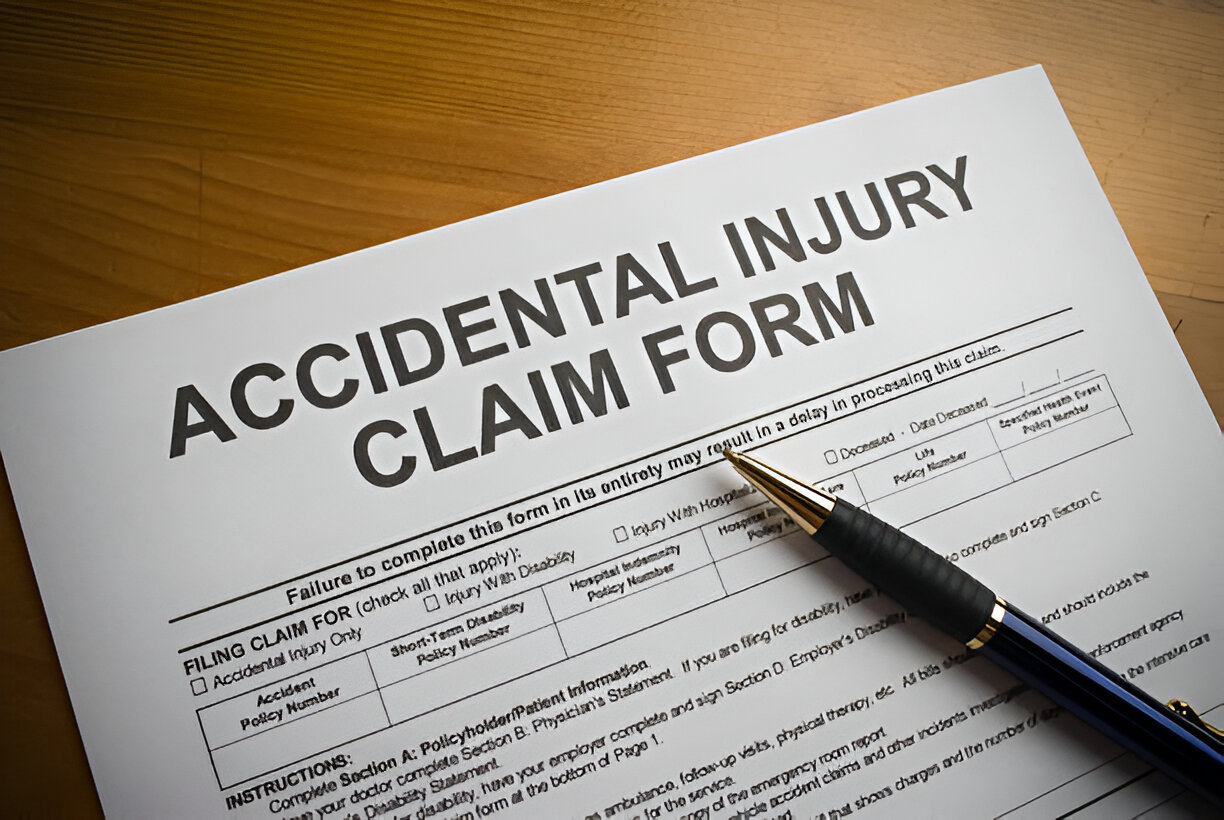Truck Accident Settlement Calculator
- Home
- Truck Accident Settlement Calculator
Estimate potential compensation for commercial truck collision injuries. If you’ve been injured in an accident involving a commercial truck, determining your potential compensation is an essential first step. Our Truck Accident Settlement Calculator provides an estimated value based on key factors specific to your situation. While this tool generates an approximation rather than a guaranteed amount, it offers valuable insight to help evaluate whether legal consultation is warranted.
This calculator analyzes your inputs against data from comparable truck accident settlements nationwide. Though not a substitute for professional legal assessment, it helps quantify possible compensation for your specific injuries and losses.
Select the type of accident you were involved in:
Passenger vehicle struck by truck: Select if you were in a car, SUV, or other passenger vehicle that was hit by a commercial truck.
Pedestrian/cyclist hit by truck: Select if you were walking, bicycling, or otherwise outside a vehicle when struck by a commercial truck.
Enter the total amount you've spent on medical treatment related to your truck accident injuries. This includes emergency care, trauma treatment, surgeries, hospital stays, medications, physical therapy, and any other medical costs you've already incurred.
Enter the total estimated cost to repair or replace your vehicle if damaged in the truck accident. This includes vehicle repair or replacement costs, damaged personal items inside your vehicle, diminished value after repairs, and rental car expenses during repairs. For passengers without vehicle damage, leave this field at $0.
Enter wages, salary, commissions, or other income you've lost due to your truck accident injuries. This includes time missed for medical appointments, recovery periods, and any reduction in work capacity.
If your injuries will prevent you from returning to your previous employment or will limit your earning capacity going forward, enter the estimated value of these future losses.
Enter the projected costs of ongoing or future medical treatment related to your truck accident injuries. This may include additional surgeries, rehabilitation, medications, adaptive equipment, or long-term care needs.
This factor reflects the severity of non-economic damages like pain and suffering. The multiplier typically ranges from 1.5 (for minor injuries) to 5 or higher (for severe, permanent injuries). The calculator applies this multiplier to your economic damages to estimate non-economic compensation.
This is the sum of your medical expenses, lost earnings, future lost income, and estimated future medical expenses. These are your actual financial losses resulting from the accident.
This represents compensation for non-monetary losses such as pain, suffering, emotional distress, loss of enjoyment of life, and inconvenience. The value is calculated by applying the damage multiplier to your economic damages.
$0
The estimated total value of your potential truck accident settlement, combining both economic and non-economic damages.
Get a free, no-obligation consultation with a truck accident attorney who can review your case details and help maximize your compensation.
Want To Embed This Calculator? Use The Code Below...
<div id="my-calculator"></div>
<script src="https://injuryclaimcalculator.us/wp-content/plugins/truck-calculator/truck-calculator.php">
</script>
<script>
loadCalculator('my-calculator');
</script>
How are truck accident settlement amounts calculated?
Our Truck Accident Settlement Calculator uses a basic mathematical formula that processes the information you provide to generate an estimate. The calculator works with these straightforward elements:
-
Direct Input Processing: The calculator only uses the specific values you enter into each field.
-
Simple Calculation Method: Economic damages (medical expenses, lost wages) are added together to create your economic damages total.
-
Standard Multiplier Application: Your selected pain and suffering multiplier is applied to economic damages to estimate non-economic compensation.
-
Basic Addition: Economic and non-economic figures are combined to produce a total estimate.
-
No External Data: The calculator does not access or incorporate any outside data beyond what you manually input.
Note that your actual settlement may differ based on jurisdiction, applicable trucking regulations, available insurance coverage, and other case-specific elements not captured by the calculator.
What types of compensation are available after truck accidents?
Truck accident victims generally pursue compensation in two primary categories: economic and non-economic damages.
-
Economic damages encompass all tangible financial losses directly attributable to the collision. These typically include emergency medical treatment, trauma care, surgical procedures, hospital admissions, and rehabilitation expenses. Also covered are income losses during recovery, diminished future earning capacity, vehicle replacement or repair costs, and transportation to medical appointments.
-
Non-economic damages address subjective losses without precise monetary values. Physical pain from injuries constitutes the primary component, accompanied by psychological and emotional distress from the traumatic event. When accidents limit participation in previously enjoyed activities, compensation for diminished quality of life may apply. Relationship interference claims (loss of consortium) are recognized in many jurisdictions.
-
Commercial trucking cases may support punitive damages in situations involving regulatory violations, logbook falsification, or other egregious misconduct. Various factors can significantly impact truck accident settlements. Multiple insurance policies often apply to commercial transportation incidents, potentially providing substantial coverage beyond minimum requirements. Comparative fault rules in your state may reduce compensation proportionate to your share of responsibility.
What injuries commonly result from commercial truck collisions?
Truck accidents generate distinctive injury patterns reflecting the significant mass differential between commercial vehicles and passenger cars. Traumatic brain injuries range from mild concussions to severe damage requiring lifetime care when occupants experience rapid deceleration forces or direct head trauma. Spinal cord injuries including herniated discs, vertebral fractures, and paralysis occur with particular frequency due to crash dynamics.
Internal injuries including organ lacerations, bleeding, and ruptures result from both blunt force trauma and extreme compression forces during impacts with commercial vehicles. These injuries often require emergency surgical intervention and may cause permanent functional impairment. Orthopedic injuries including complex fractures, joint dislocations, and crush injuries frequently require multiple surgical procedures and extended rehabilitation.
Psychological trauma including post-traumatic stress disorder affects many truck accident victims, creating lasting anxiety, flashbacks, and phobic responses to driving or riding in vehicles. Facial injuries and disfigurement occur when airbag deployment, windshield impacts, or intrusion into passenger compartments causes lacerations or fractures to facial structures.
Injury severity, treatment requirements, and long-term prognosis directly influence settlement valuations. Catastrophic injuries resulting in permanent disability typically generate substantially higher compensation amounts reflecting lifetime care needs and profound quality of life impacts.
Which parties might bear liability for your truck accident?
Truck accident liability frequently extends beyond the immediately involved driver, creating multiple potential recovery sources. Commercial truck drivers bear primary responsibility for operational negligence including speeding, hours-of-service violations, distracted driving, or impaired operation. Trucking companies face vicarious liability for driver actions and independent negligence claims for inadequate hiring, training, or supervision practices.
Freight brokers who arrange shipping may bear liability when they select carriers with known safety deficiencies or fail to verify appropriate operating authority and insurance coverage. Vehicle manufacturers and component suppliers face potential liability for design or manufacturing defects contributing to accident causation or increased injury severity.
Cargo loading companies may bear responsibility when improper weight distribution, inadequate securement, or overloading contributes to accident causation through vehicle handling impairment or brake system stress. Maintenance contractors could face liability for negligent repair or inspection practices when mechanical failures result in collisions.
Government entities responsible for roadway design and maintenance occasionally face claims for dangerous conditions particularly hazardous to commercial vehicles. Leasing companies that own truck tractors or trailers may bear ownership-based liability under specific state laws regardless of operational control.
What regulatory factors influence truck accident liability?
Do you understand how federal trucking regulations affect your potential claim? Commercial transportation operates under comprehensive federal oversight through the Federal Motor Carrier Safety Administration (FMCSA) creating industry-specific standards relevant to liability determination.
Hours-of-service regulations establish maximum driving time limits and mandatory rest periods to prevent fatigue-related accidents. Electronic logging devices now document compliance automatically, creating objective evidence when violations occur. Driver qualification requirements mandate specific licensing, medical certification, and training standards, with violations potentially establishing negligent entrustment claims against employers.
Vehicle maintenance regulations require systematic inspection, repair, and documentation procedures beyond those applicable to passenger vehicles. Specific securement standards govern cargo transportation with detailed requirements varying by freight type. Hazardous materials transportation faces particularly stringent requirements including specialized training, documentation, and equipment specifications.
Drug and alcohol testing requirements create mandatory screening protocols following accidents, with positive results substantially impacting liability. Insurance minimums for interstate carriers start at $750,000 for general freight and reach $5,000,000 for hazardous materials transportation, significantly exceeding typical passenger vehicle coverage.
These regulatory standards establish clear benchmarks for reasonable care in commercial transportation, with violations often supporting negligence per se liability theories in injury litigation.


State-by-state legal time limits for filing truck accident claims
Truck accident claims involve strict legal deadlines that vary by state and defendant type. While most jurisdictions allow 2-3 years to file personal injury lawsuits, cases involving government vehicles often require notice within just 60-180 days.
Missing these critical deadlines can permanently bar your right to compensation. For a complete breakdown of filing deadlines in all 50 states, including special requirements for commercial carriers, federally-mandated evidence preservation rules, and provisions for catastrophic injuries, visit our comprehensive Accident Statute of Limitations guide.
Remember that commercial trucking cases may involve multiple potentially liable parties, each potentially subject to different jurisdictional rules and deadlines.
What steps should be taken immediately after a truck collision?
After involvement in a commercial truck accident, take specific measures to safeguard both your physical wellbeing and legal interests. Seek emergency medical assessment regardless of apparent injury severity, as internal trauma often presents delayed symptoms following severe collision forces. Contact law enforcement to ensure official documentation including commercial driver and vehicle information.
Document the scene thoroughly if safety permits, photographing all vehicles, surrounding area features, trucking company identifiers, and visible injuries. Collect contact information from all witnesses, particularly those who observed pre-impact driving behavior. Note weather conditions, visibility factors, and any apparent mechanical issues with the commercial vehicle.
Request identification of all potential insurance policies covering the truck, including separate policies for tractor, trailer, cargo, and driver. Maintain complete records of all medical consultations, retain copies of all healthcare documentation, and adhere strictly to treatment recommendations. Preserve the damaged passenger vehicle without repairs for expert examination of crash dynamics and safety system performance.
Avoid social media discussion of the incident and decline recorded statements to trucking company representatives or insurers without legal counsel. Contact a qualified truck accident attorney before accepting any settlement proposal, particularly with significant injuries or disputed liability.


When is legal representation advisable for truck accident claims?
What circumstances indicate the need for attorney consultation in your truck accident case? Consider securing legal representation for all commercial vehicle collisions resulting in significant injury, as these cases involve complexities rarely present in ordinary vehicle accidents. Attorney involvement becomes particularly crucial when facing corporate defense teams representing trucking industry interests.
Truck accident litigation requires specialized expertise including knowledge of specific federal regulations, industry practices, and technical aspects of commercial vehicle operation. Qualified counsel secures electronic control module data, driver qualification files, maintenance records, and other critical evidence through immediate preservation demands and formal discovery processes.
Experienced truck accident attorneys accurately value complex injury claims by calculating complete current and projected financial losses while ensuring appropriate compensation for non-economic damages. Multiple insurance policies often apply to commercial transportation incidents, requiring systematic identification of all coverage sources and policy limits.
Most truck accident lawyers provide complimentary case evaluations and operate on contingency fee structures, eliminating upfront costs while aligning attorney compensation with successful outcomes.

